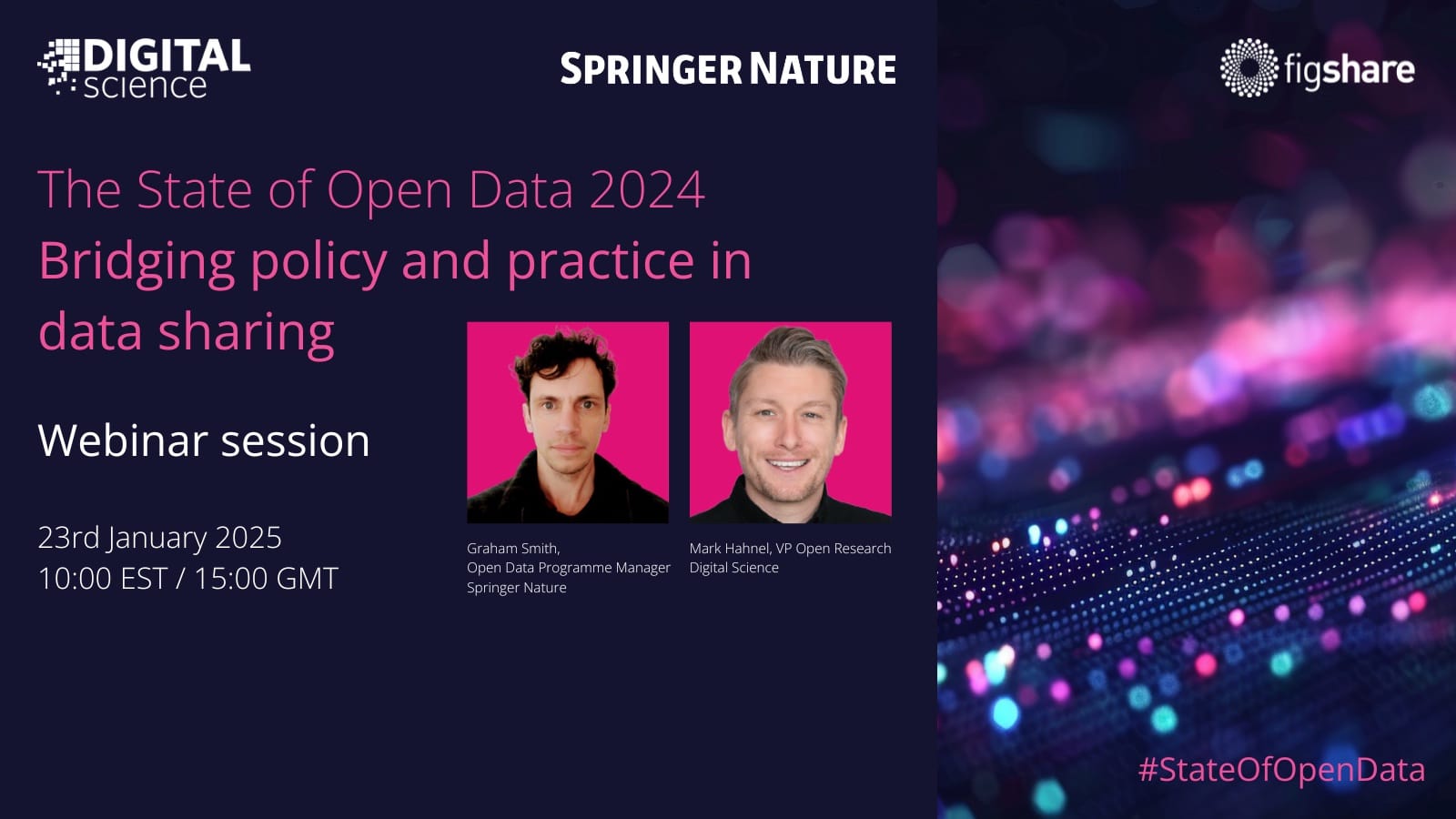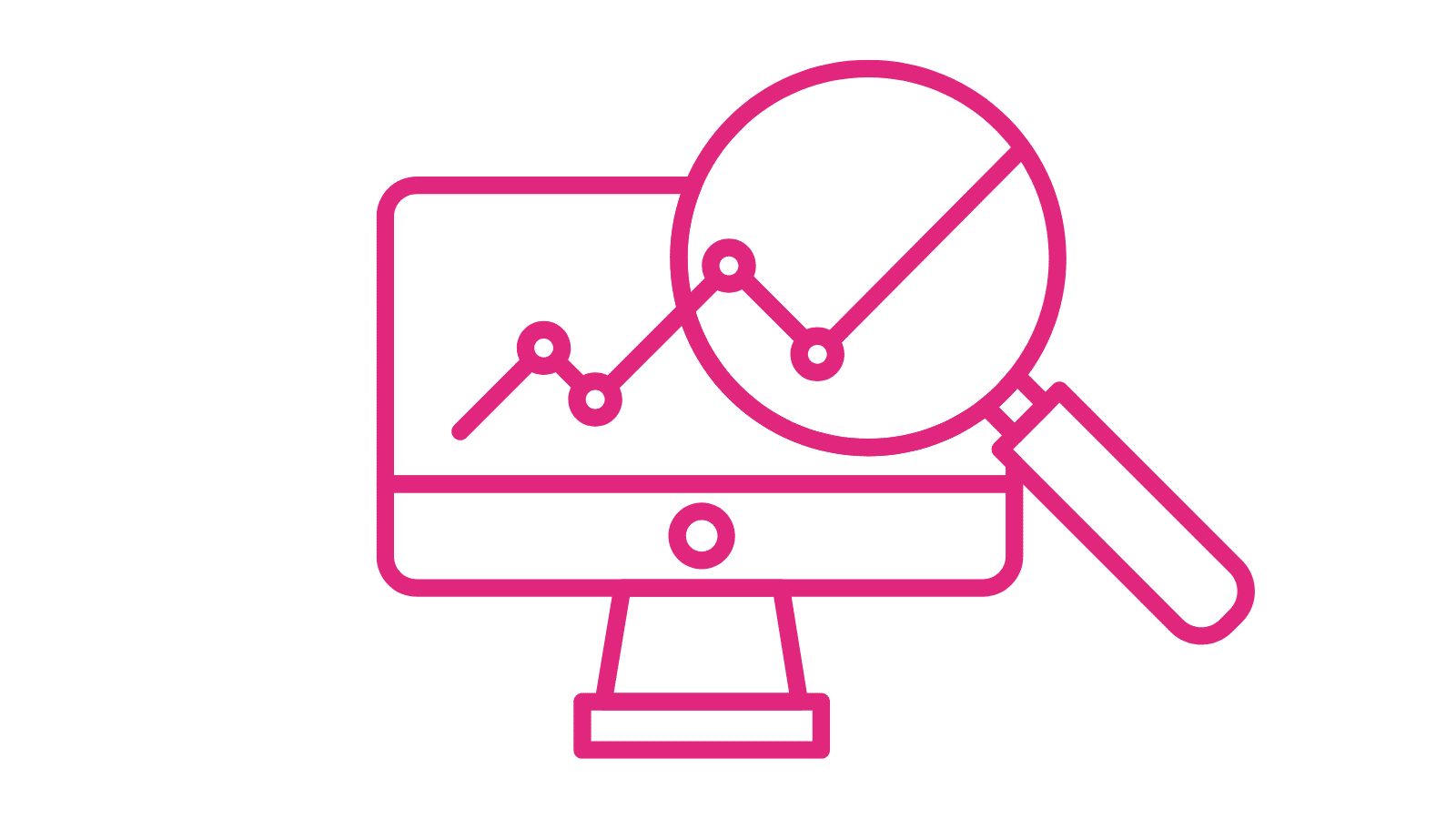Beyond attitudes to actions
The State of Open Data survey continues to provide a detailed and sustained insight into the motivations, challenges, perceptions, and behaviors of researchers towards open data. Now in its ninth year, the survey is a collaboration between Figshare, Digital Science and Springer Nature. Uniquely this year we wanted to go beyond understanding the thoughts and attitudes of researchers and, for the first time, look into what they were actually doing.
By combining three different data sources; Dimensions, Springer Nature Data Availability Statements (DAS), and the Make Data Count and DataCite Data Citation Corpus, we reveal linkages between peer reviewed published research and data sets being made available. We believe this jump from understanding what people say they are going to do to actively showing what they are doing, is an important step in driving change and understanding how to bridge the gap between policy and practice in open data sharing.
On this page

This report serves several purposes. Firstly, it confirms that the qualitative survey data of the State of Open Data over the last 9 years has been accurate when compared to quantitative actions of researchers worldwide. Secondly, it provides a pathway which can be taken to use data to create the carrots and rewards metrics for researchers who publish their open data.
Mark Hahnel | VP Open Research| Digital Science
Report key findings

1. We can now offer carrots to drive change
In our survey results for the last nine years, a recurring theme has been that researchers feel that they do not receive enough credit for sharing their data.
With the introduction of initiatives like the Make Data Count and DataCite Data Citation Corpus and the The NIH Data Sharing Index (S-Index) Challenge that is seeking innovative approaches to quantify and evaluate data-sharing practices by biomedical researchers; there are now real incentives developing.

2. Resource disparities are holding back progress
From the DAS analysis we see positive trends in open science practices, such as modest increases in repository sharing and reductions in “on request” sharing. These trends are more pronounced in developed regions like Europe and the US. This observation raises concerns about a potential divide where open science becomes the preserve of better-resourced research environments, potentially marginalizing researchers in low- and middle-income countries (LMICs).

3. There is a need for practical support beyond policy
The reductions in “on request” and “in manuscript” sharing are generally not complemented by significant rises in repository sharing. In some cases, we observe increases in data being declared as “not applicable” or shared through non-repository venues. This pattern suggests that policy changes alone are insufficient to drive the desired shift towards open data practices.

4. Sustained efforts are required to respond to the challenges in diverse research areas
Fields such as humanities or certain social sciences may have different methodological approaches, data types, and sensitivities that pose challenges for data sharing. Researchers in these areas may lack established community practices and appropriate repositories or may be dealing with data that is inherently difficult to share due to confidentiality or ethical concerns. Open data practices are gaining traction even in diverse research contexts, but tailored support and resources are needed to address discipline-specific challenges.
Video overview
We recently spoke to the authors of the report, Mark Hahnel from Digital Science and Graham Smith from Springer Nature.



